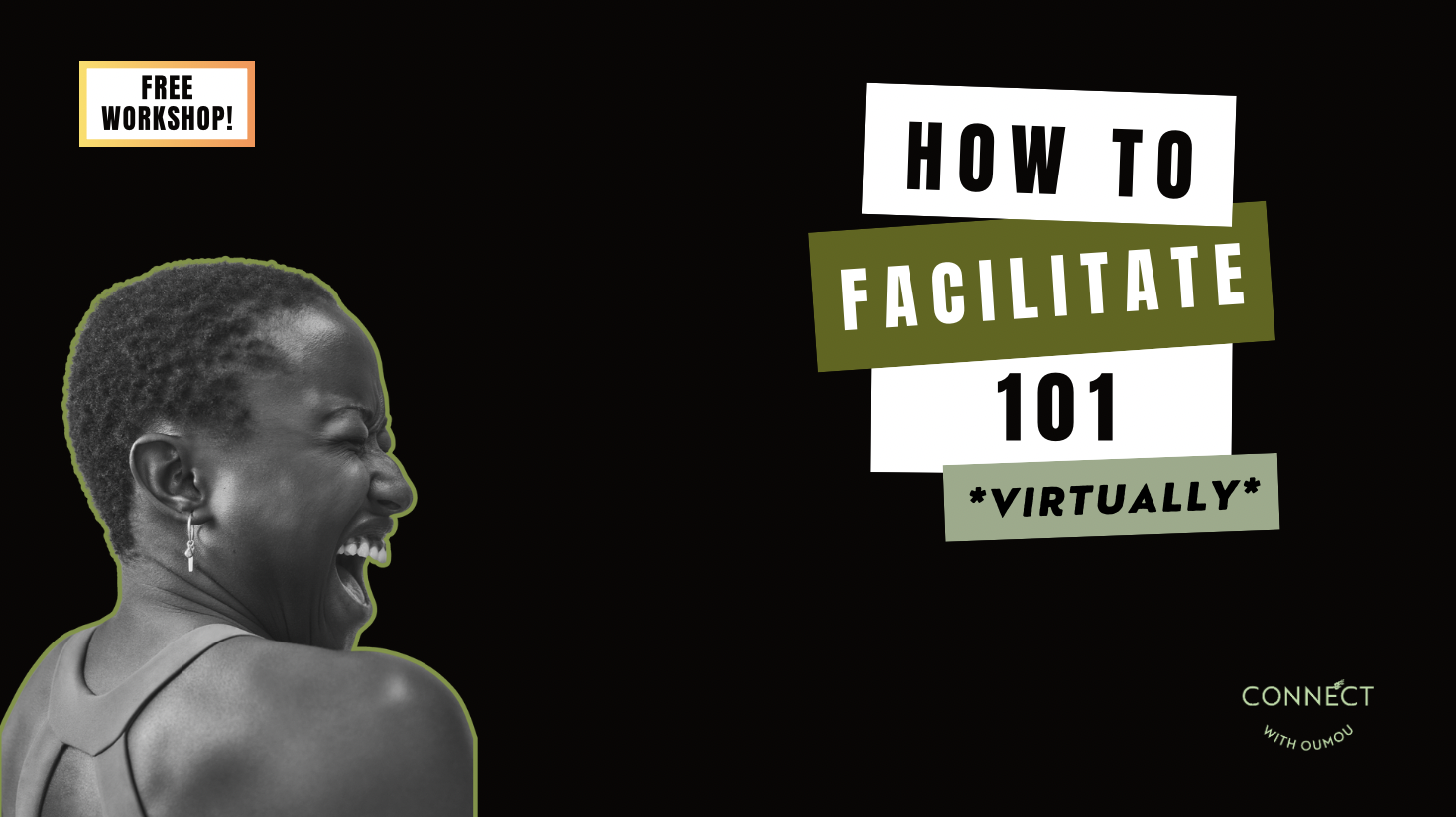Free "How to Facilitate 101" Workshop
For Educators, Community Organizers, Facilitators, and Advocates
Ever been in a "learning space" and found yourself thinking, "Why am I here?", "What is this person even talking about?", or "I could’ve just Googled this?" Facilitating is not just about getting in front of people (virtual or otherwise)—it’s about creating intentional, playful spaces of radical learning.
I don’t care for academia or the gatekeeping of knowledge they perpetuate. I'm not a fan of facilitators who see themselves as untouchable experts with nothing to learn. I refuse to facilitate spaces where anti-Blackness, ableism, or any other oppressive 'ism' goes unchecked. And I don’t want to invite people to workshops that rely on hierarchical knowledge-sharing.
As a facilitator, I know I still have a lot to learn, but from the feedback I’ve received over the last two years, I also know I have a lot to offer. So, here I am with a non-radical mental health first aide workshop—hope you like it.
Unlock the Skills You Need to Empower Communities
Join me for a 1.5-hour live session on October 25th at 4pm PST that blends slides, discussions, and reflection on facilitation best practices. Whether you're just starting out or looking to refine your approach, this workshop will provide some building blocks to create impactful, engaging experiences that are informed by consent, community building, and play.
And the best part? It's free.
What You’ll Learn:
Introduction to Radical Facilitation
Understand why you facilitate, explore your lineage of knowledge, and discover your unique zone of genius.
Creating Brave and Risk-Aware Spaces
Learn a little about consent, RMHFA ACTION plan, how to set clear guidelines, address power dynamics, and foster open, respectful dialogue.
Facilitating for Varying Body-Minds
Become familiar with the use of accessible language, flexible participation options, and inclusive practices like closed captioning and multi-modal communication.
Zoom Best Practices
Get practical tips for keeping participants engaged and navigating any technical challenges that arise.
Personal Experience and Vulnerability
Learn how to bring your authentic self and stories into your facilitation while creating a welcoming, supportive virtual space.
How You Can Immediately Apply What You Learn:
Host (slightly) More Inclusive Meetings/Workshops: Use what you’ve learned about consent and accessibility to transform how you lead team meetings, virtual gatherings, and group discussions. Create spaces where people feel able to participate, should they want to.
Apply to Your Community Activism: Use your facilitation skills in grassroots organizing, community discussions, or social justice events to create spaces where important conversations can thrive.
Address Power Dynamics in Group Settings: Recognize and begin to challenge power imbalances within the spaces you facilitate. Use the tools learned in the workshop to call out and disrupt hierarchies that harm folks based on race, gender, neurodiversity, or ability.
Integrate the Radical Mental Health First Aide (RMHFA) ACTION Plan: Begin incorporating elements of the RMHFA ACTION plan in your workshops or group sessions. Whether in educational, community, or workplace environments, you can use this plan to co-create spaces where more intentional care is possible.
Facilitate Consent-Based Spaces: Implement consent practices in every part of your facilitation process—like giving participants control over their engagement levels and using opt-in participation methods to let people choose how they interact with the material and with each other.
Invite Participants to Take Action: Build workshops that go beyond information sharing and invites participants to take actionable steps. This could be as simple as leading a follow-up discussion about how they’ll apply what they learned in their own communities, or as complex as guiding them through strategic planning for different initiatives (i.e. mutual aid or a community care and crisis hotline like Walls Down Collective).
